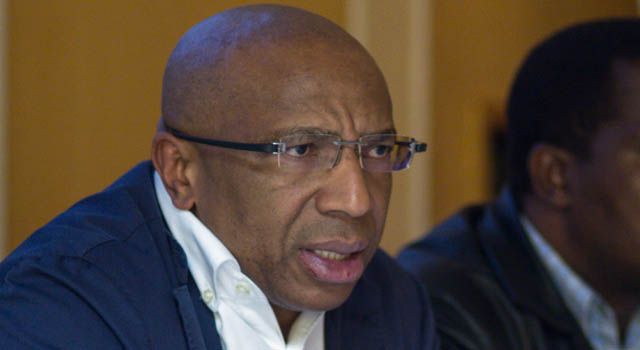 The South African economy may be teetering on the brink of a recession, but that isn’t keeping the country’s telecommunications operators from ramping up their capital spending. Telkom, Vodacom, MTN and Cell C, along with a host of smaller players, are all gearing up to make huge investments in fixed and mobile broadband.
The South African economy may be teetering on the brink of a recession, but that isn’t keeping the country’s telecommunications operators from ramping up their capital spending. Telkom, Vodacom, MTN and Cell C, along with a host of smaller players, are all gearing up to make huge investments in fixed and mobile broadband.
In fixed lines in particular, a race has begun that could eventually result in a large part of Telkom’s legacy copper network being replaced with super-fast and future-proof fibre-optic broadband.
In mobile, meanwhile, the operators are positioning themselves to build national, next-generation LTE broadband networks as government finally — after years of delays — readies a policy on how radio frequency spectrum in two key bands will be allocated.
Barely a day goes by now without the CEO of one of the operators promising huge capital investments to bring developed world-level broadband to South African consumers.
On Monday this week, it was the turn of Telkom CEO Sipho Maseko, who used the company’s annual Satnac conference to declare that the operator will not sit idly by and watch its market share in fixed lines being taken away by its many rivals, including the big mobile operators and a dozen or more telecommunications start-ups.
Telkom, he said, will roll out fibre broadband past (although not into) a million homes by March 2018, from just 40 000 now.
That will entail a doubling of Telkom’s previously planned investment in fibre-to-the-home infrastructure, but Maseko said Telkom’s wholesale division, led by company veteran Alphonzo Samuels, has the wherewithal to get the job done and to get it done on time.
But Maseko’s competitors are not standing still. Vodacom Business chief officer Vuyani Jarana said on Wednesday that Vodacom has an “aggressive” deployment planned for home fibre broadband. It has appointed Louisa van Beek as managing executive to lead the roll-out into both homes and businesses. Jarana described the fibre project as Vodacom’s next big area of focus.
MTN is also understood to have big fibre plans, and recently began trenching streets in its first fibre suburbs in Cape Town. This follows earlier deployments in a few Johannesburg suburbs, including Lonehill.
MTN, with a budget of R10bn for 2015, is outspending bigger rival Vodacom this year on capital projects. Though most of this is directed at the mobile network, it’s likely that the share being spent on fibre access networks in the coming years will expand rapidly.
Even the debt-laden Cell C is ramping up its spending. Although it’s not tackling the fixed-line space (yet), it has received the backing of its shareholders — led by Oger Telecom — to spend R8bn on a 4G/LTE mobile broadband network over the next three years.
This spending is happening despite the fact that government has still not issued the policy direction that the communications regulator, Icasa, needs to provide operators with access to additional spectrum to expand their networks. Because of this, some players have been forced to reallocate parts of the spectrum they’ve used historically for voice services and use it instead for broadband wireless access.

But the operators are rapidly running out of capacity. Government’s tardiness in finalising a spectrum policy is the main driver behind Vodacom’s proposed R7bn acquisition of Neotel (currently the subject of an investigation by the Competition Tribunal).
But good news may be on the horizon for those desperate for access to additional spectrum and for prospective players, like Irene Charnley’s Smile Telecoms, which wants to enter the market for the first time and challenge the mobile incumbents.
Telecoms & postal services minister Siyabonga Cwele this week said that government will publish its final policy on “high demand” spectrum within the next six months. He also said he is working hard to fix the long “dysfunctional” — his word — telecoms department as fast and efficient decision making on policy matters is essential to the health of the sector and growing South Africa’s economy.
Indeed, allocating new spectrum looks set to trigger a fresh investment wave by the private sector. Former MTN group executive Charnley this week said, for example, that Smile Telecoms — which has just raised US$365m (about R5bn) in new funding to expand its networks in Tanzania, Uganda and Nigeria and to establish a presence in the Democratic Republic of Congo — is ready and willing to take on the South African incumbents in 4G/LTE wireless broadband.
But Charnley lashed South African authorities for a lack of transparency in policy formulation and regulation.
She said other African countries, including the ones in which Smile currently operates, are doing much better on this score. It is crucial, Charnley said, that the process for licensing broadband spectrum in South Africa is “clear and unambiguous”.
- This piece was first published in the Sunday Times
- Subscribe to TechCentral’s free daily newsletter




